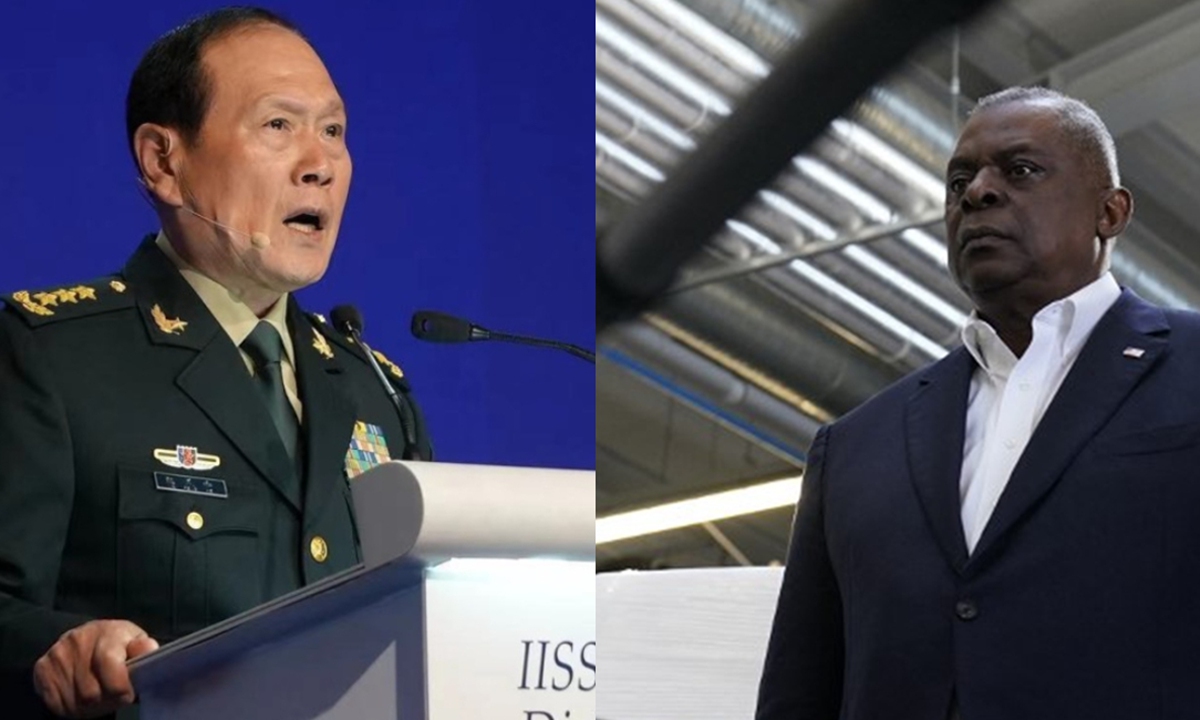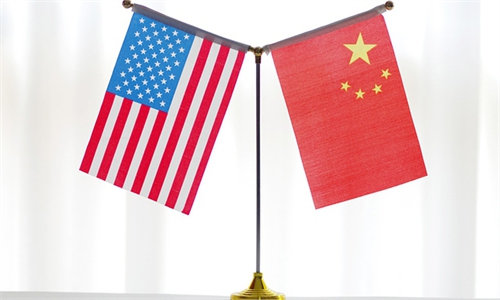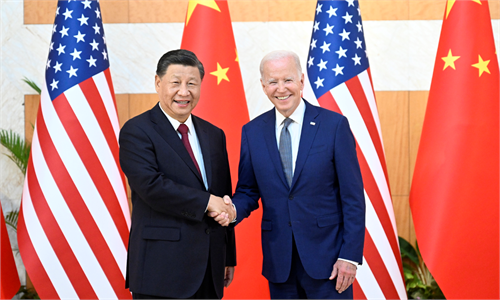China remains open to defense chief dialogue with US during ADMM-Plus meeting
US military 'should implement Biden's promise' of not seeking conflict

Chinese State Councilor and Defense Minister General Wei Fenghe, US Secretary of Defense Austin Lloyd Photo:File
The Chinese and US sides are "communicating and coordinating" with each other on bilateral exchanges on the sidelines of the upcoming ASEAN Defense Ministers' Meeting-Plus (ADMM-Plus), said the Chinese Defense Ministry on Sunday morning, as experts said that to what extent the meeting would bring positive outcomes that could benefit regional and world peace and stability depends on whether or not the US military will implement the US president's reaffirmed promise of not seeking conflict with China.
"The Chinese side holds a positive and open attitude toward exchanges with the US side during the ASEAN Defense Ministers' Meeting-Plus," said Senior Colonel Tan Kefei, spokesperson for the Ministry of National Defense, when responding to a question that if the defense ministers of the two countries would hold talks on the sidelines of the ADMM-Plus to be held in Cambodia. Tan said the relevant departments of the two sides "are maintaining communication and coordination" in this regard.
Earlier on Saturday, the Chinese Defense Ministry announced that Chinese State Councilor and Defense Minister General Wei Fenghe will attend the 9th ADMM-Plus and visit Cambodia from Sunday to Thursday on the invitation of Phnom Penh.
Wei will deliver a speech at the conference and hold meetings with the heads of delegations of some participating countries on the sidelines, exchanging views on international and regional situations and defense security cooperation, the ministry announced in a statement. Wei will also meet and hold talks with Cambodian state and military leaders during his visit in the country, the statement said.
Zhuo Hua, an international affairs expert at the School of International Relations and Diplomacy of Beijing Foreign Studies University, told the Global Times on Sunday that if Wei's meeting with US Secretary of Defense Austin Lloyd takes place during the ADMM-Plus, it means that both sides are implementing the consensus of keeping open strategic dialogue that the top leaders of the two countries reached on the sidelines of the just-concluded G20 summit in Bali, Indonesia.
Li Haidong, a professor from the Institute of International Relations at the China Foreign Affairs University, told the Global Times on Sunday that the meeting between the presidents of the two countries is guiding China-US exchanges to reach new breakthroughs in different areas.
"The meeting between the defense chiefs is positive, as even though the two sides can't realize agreements on some specific issues, they can at least put joint efforts into managing potential risks and dangers," Li noted.
"The US Defense Department desperately wants to make military diplomacy with China cover the operational level of war, and the Chinese military has always upheld the tradition of safeguarding regional and world peace via military diplomacy, so China holds a proactive and open attitude for communication and coordination with defense departments of different countries worldwide, including the US," Zhuo said.
Although the meeting between the Chinese and US defense chiefs meets the anticipation of the two countries and the international community, "we should be cautious to the outcome of the dialogue, because since US President Joe Biden came to power, we found the US military has failed to implement their president's positive promise in some operations on keeping the US-China ties away from conflict and a new cold war," Zhuo said.
On topics like the South China Sea and the Taiwan question, both sides will surely communicate, but these problems between the two major powers cannot be resolved in the short term. During their upcoming exchanges, the Chinese side can stress the importance and sensitivity of relevant topics to strengthen the appreciation of where the bottom-line is in the mind of the US side, Li said.
Duplicity is a long-standing problem of the US military, as although it sometime controls its hostile and provocative tones to prevent angering China too much, its military operations to contain China and threatening China's sovereignty and national security have never stopped, Zhuo said. "This makes it very difficult for the two sides to build mutual trust," Zhuo noted.
The US desire of having military diplomacy with China is based on assumptions about how to manage conflict and crisis if the two sides have military frictions some day, but China eyes how to fundamentally safeguard and improve peace and stability for the region and the world, so China wants to build a crisis management mechanism based on real political and strategic mutual trust, Zhuo told the Global Times.
"Therefore, if the US military is sincere in wishing to work with the Chinese side to jointly manage military ties between the two countries, they should work together with their Chinese counterparts to meet each other halfway," Zhuo said.



